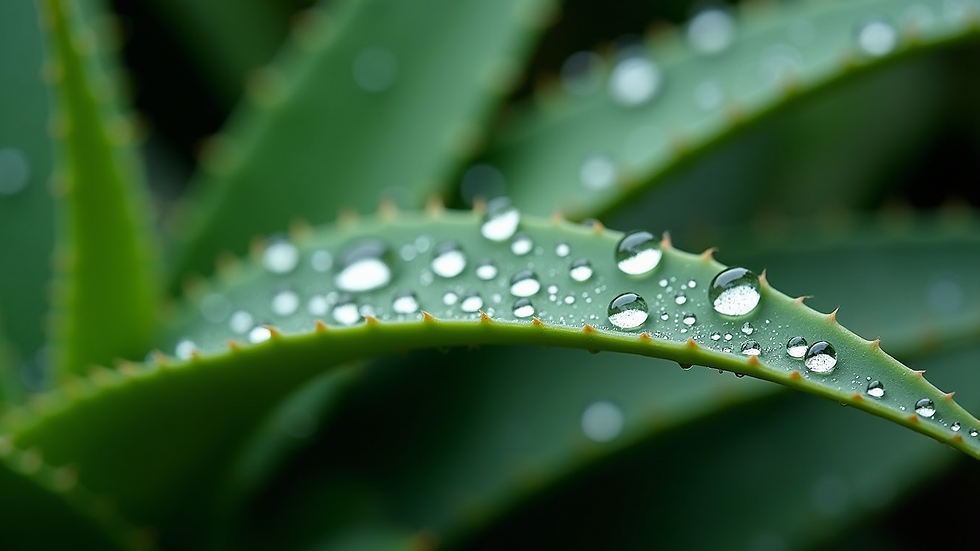Effective Solutions for Managing Dry Skin
- Mindy Cook

- Jul 17
- 3 min read
Dry skin is a common issue that many individuals face, particularly during the colder months or in arid climates. The feeling of tightness, flakiness, and discomfort can be distressing. Fortunately, there are effective solutions to manage dry skin, ensuring that your skin remains healthy and hydrated.

Dry Skin Solutions
When it comes to addressing dry skin, adopting a comprehensive skincare routine can make a significant difference. Start with choosing a suitable cleanser. Opt for a gentle, hydrating formula that does not strip your skin of its natural oils. Look for products with ingredients like glycerin, aloe vera, or hyaluronic acid, which provide moisture without causing irritation.
After cleansing, it is crucial to apply a moisturizer. Use a thick cream or lotion that contains occlusive ingredients, such as shea butter or petrolatum, which help seal in moisture. Apply it while your skin is still damp to lock in hydration effectively.
Remember to moisturize your skin multiple times a day, especially in areas prone to dryness, like elbows, knees, and feet. Additionally, incorporating a humidifier in your living space can add moisture to the air, reducing the drying effect of indoor heating and air conditioning.

What Am I Lacking If My Skin is Dry?
Sometimes, dry skin can be a sign of underlying nutritional deficiencies. For instance, insufficient intake of essential fatty acids can lead to a compromised skin barrier. These fatty acids, found in foods such as flaxseeds, walnuts, and fish, are crucial for maintaining skin elasticity and hydration.
Moreover, vitamins play an essential role in skin health. Vitamin E, found in nuts, seeds, and leafy greens, protects against oxidative stress, while vitamin A, available in carrots and sweet potatoes, promotes skin regeneration. Deficiencies in these vitamins can contribute to dry skin, making it essential to maintain a balanced diet rich in nutrients.
Another potential cause of dry skin is dehydration. Ensure you are drinking enough water throughout the day, aiming for about eight glasses. You can also include foods with high water content, such as cucumbers, oranges, and strawberries, to boost your hydration levels.
Daily Habits to Prevent Dry Skin
In addition to a consistent skincare routine, cultivating good daily habits can further prevent dry skin. For starters, avoid hot showers and baths, as these can strip your skin of natural oils. Instead, opt for lukewarm water and limit your bathing time to 10-15 minutes.
After bathing, pat your skin dry gently with a towel instead of rubbing it. Apply moisturizer immediately after drying your skin to take advantage of the hydrated condition.
Additionally, choose your clothing wisely. Opt for loose-fitting, breathable fabrics such as cotton, which allow your skin to breathe and prevent irritation. Avoid harsh fabrics like wool, which can exacerbate dryness and cause discomfort.

Seasonal Considerations for Dry Skin Management
As seasons change, so do the needs of your skin. In winter, the air tends to be cold and dry, leading to increased moisture loss. To combat this, ensure you are using a richer moisturizer and consider layering products for added hydration.
During warmer months, switch to lighter formulas that won’t clog your pores, but still provide adequate moisture. Incorporating a light gel-based moisturizer with hyaluronic acid can maintain hydration without the heaviness of creams.
Additionally, protect your skin from sun damage year-round. Use sunscreen every day, regardless of the season, as UV rays can worsen dryness and lead to premature aging. Choose broad-spectrum products ideally containing hydrating ingredients.
Conclusion: The Path to Hydrated Skin
Managing dry skin requires consistent effort, but the results are well worth it. By understanding the underlying factors of dry skin, implementing proper skincare and daily habits, and paying attention to seasonal changes, you can achieve and maintain a healthy, hydrated complexion.
For further information, consider checking out these dry skin care tips that offer specific product recommendations and routines customized for your skin type. It's time to treat your skin with the care it deserves and say goodbye to dryness!




Comments